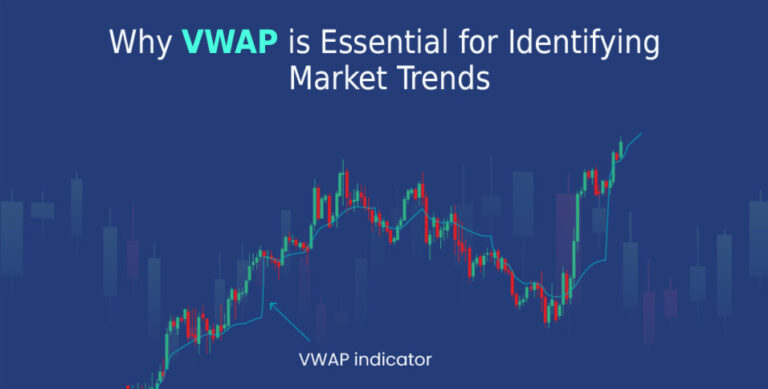In our increasingly interconnected world, the ability to communicate seamlessly across borders is not just a luxury—it’s a necessity. Behind the scenes of every international call lies a complex system that ensures your voice reaches its destination, regardless of the distance. This system is known as wholesale voice termination, and it plays a crucial role in global telecommunications.
Wholesale voice termination is the process by which telephone calls are routed from one provider to another to complete international or long-distance calls. It’s a vital component of the telecommunications industry, enabling businesses and individuals to connect with anyone, anywhere in the world, at any time.
In this comprehensive guide, we’ll explore the intricacies of wholesale voice termination, its importance in global communications, and how businesses can leverage it to enhance their operations. We’ll also look at how providers like MyCountryMobile and Callmama are shaping the industry with innovative solutions.
Understanding Wholesale Voice Termination
What is Wholesale Voice Termination?
Wholesale voice termination refers to the service provided by carriers to route phone calls through the Public Switched Telephone Network (PSTN) to their final destinations. In simpler terms, it’s the process of completing a call from the caller to the receiver, often across different networks and countries.
When you make an international call, your voice travels through a complex web of interconnected networks before reaching the recipient. Wholesale voice termination providers act as intermediaries in this process, ensuring that calls are routed efficiently and cost-effectively.
The Voice Termination Process
To understand wholesale voice termination better, let’s break down the process:
- Call Initiation: A caller dials an international number.
- Origination: The call enters the network of the originating service provider.
- Routing: The originating provider sends the call to a wholesale voice termination carrier.
- International Transit: The wholesale carrier routes the call through international gateways.
- Termination: The call is delivered to the local carrier in the destination country.
- Final Delivery: The local carrier connects the call to the recipient’s phone.
This entire process happens in a matter of seconds, thanks to the sophisticated infrastructure of wholesale voice termination providers.
The Importance of Wholesale Voice Termination
Wholesale voice termination is critical for several reasons:
1. Global Connectivity
It enables seamless communication across borders, connecting people and businesses worldwide. Companies like MyCountryMobile specialize in providing this global reach, ensuring that calls can be made to even the most remote locations.
2. Cost Efficiency
By leveraging wholesale rates, carriers can offer more competitive pricing for international calls. This is particularly beneficial for businesses with high call volumes to international destinations.
3. Quality of Service
Reputable wholesale voice termination providers invest in high-quality routes and advanced technology to ensure clear, reliable connections. This is crucial for maintaining professional communications in a business context.
4. Scalability
Wholesale voice termination allows telecommunications companies to handle large volumes of calls without significant infrastructure investments. This scalability is essential for growing businesses and during peak calling periods.
5. Regulatory Compliance
Navigating the complex regulatory landscape of international telecommunications can be challenging. Wholesale voice termination providers handle these complexities, ensuring compliance with local laws and regulations in different countries.
Key Players in Wholesale Voice Termination
Several types of entities play crucial roles in the wholesale voice termination ecosystem:
1. Tier 1 Carriers
These are large telecommunications companies with extensive global networks. They form the backbone of international voice traffic.
2. Wholesale Voice Termination Providers
Specialized companies that focus on routing international calls. They often have agreements with multiple carriers to ensure global coverage. Providers like Callmama fall into this category, offering tailored solutions for businesses of all sizes.
3. VoIP Service Providers
Companies that offer Voice over Internet Protocol services often rely on wholesale voice termination to complete calls to traditional phone networks.
4. Mobile Network Operators
While they primarily serve end-users, mobile operators also engage in wholesale voice termination for incoming international calls.
5. Over-the-Top (OTT) Service Providers
Applications that offer voice calling features (like WhatsApp or Skype) may use wholesale voice termination to connect calls to regular phone numbers.
Factors Affecting Wholesale Voice Termination Rates
Several factors influence the pricing of wholesale voice termination services:
1. Call Volume
Larger volumes typically result in lower per-minute rates. Providers like MyCountryMobile often offer tiered pricing based on call volume.
2. Destination
Rates vary significantly depending on the country or region where calls are being terminated. Calls to major cities or countries with advanced telecommunications infrastructure are generally cheaper than those to remote areas.
3. Quality of Routes
Premium routes with better call quality and reliability often come at higher prices. However, they’re essential for businesses that prioritize call clarity and connection stability.
4. Time of Day
Some providers offer different rates for peak and off-peak hours, allowing cost-conscious businesses to optimize their calling patterns.
5. Contract Terms
Longer-term commitments or higher volume commitments can often secure better rates.
6. Regulatory Environment
Telecommunications regulations in different countries can impact termination costs. Some nations impose higher taxes or fees on international calls, which are reflected in the termination rates.
Challenges in Wholesale Voice Termination
While wholesale voice termination offers numerous benefits, it also comes with its share of challenges:
1. Price Volatility
Wholesale voice termination rates can fluctuate frequently due to changes in local regulations, currency exchange rates, and market competition.
2. Quality Control
Maintaining consistent call quality across various routes and providers can be challenging, especially for budget-conscious operators.
3. Fraud Prevention
The wholesale voice market is particularly vulnerable to various forms of fraud, such as CLI spoofing and artificial traffic inflation.
4. Regulatory Compliance
Keeping up with changing telecommunications regulations in different countries requires constant vigilance and adaptability.
5. Technical Complexities
Managing a wholesale voice termination network requires sophisticated systems and technical expertise.
Best Practices for Wholesale Voice Termination
To navigate these challenges and maximize the benefits of wholesale voice termination, consider the following best practices:
1. Diversify Your Carrier Mix
Work with multiple upstream carriers to ensure redundancy and optimize routing options. This approach, adopted by providers like Callmama, helps maintain service quality and competitive pricing.
2. Implement Robust Monitoring Systems
Use real-time monitoring tools to track call quality metrics and identify issues promptly. This allows for quick resolution of any problems that may arise.
3. Invest in Fraud Detection
Implement advanced fraud detection and prevention systems to protect your network and customers from potential threats.
4. Stay Informed on Regulations
Keep abreast of regulatory changes in the countries where you terminate calls to ensure compliance and avoid potential legal issues.
5. Optimize Routing Algorithms
Continuously refine your least cost routing (LCR) algorithms to balance cost and quality effectively. This is a key strategy employed by successful providers like MyCountryMobile.
6. Prioritize Quality Assurance
Regularly test your routes and monitor call quality to ensure you’re providing the best possible service to your customers.
7. Embrace Automation
Leverage automation for tasks like routing updates, billing, and quality monitoring to improve efficiency and reduce human error.
The Future of Wholesale Voice Termination
As technology continues to evolve, several trends are shaping the future of wholesale voice termination:
1. Integration with Unified Communications
Wholesale voice termination is increasingly being integrated into broader unified communications solutions, offering businesses more comprehensive and streamlined communication tools.
2. Adoption of AI and Machine Learning
These technologies are being used to optimize routing, predict network issues, and enhance fraud detection in real-time.
3. Shift to Cloud-Based Solutions
Cloud-based wholesale voice termination platforms are gaining popularity, offering greater flexibility and scalability.
4. Focus on Security
With growing concerns about data privacy and security, providers are investing more in advanced security measures to protect voice communications.
5. 5G Impact
The rollout of 5G networks is expected to enhance call quality and potentially open new opportunities in the wholesale voice termination market.
Choosing a Wholesale Voice Termination Provider
Selecting the right wholesale voice termination provider is crucial for businesses looking to optimize their international communications. Consider the following factors:
- Global Coverage: Ensure the provider offers termination services in all the geographic areas you need.
- Quality of Service: Look for providers with a track record of delivering high-quality, reliable connections.
- Competitive Rates: Compare rates across multiple providers, but remember that the cheapest option isn’t always the best.
- Technical Capabilities: Evaluate the provider’s network infrastructure, routing technologies, and support for various protocols.
- Customer Support: Choose a provider that offers robust technical support and account management.
- Scalability: Ensure the provider can accommodate your growth and handle sudden spikes in call volume.
- Security Measures: Verify that the provider adheres to industry-standard security practices and offers fraud protection.
- Billing and Reporting: Look for providers that offer detailed, accurate billing and comprehensive reporting tools.
Companies like MyCountryMobile and Callmama have established themselves in the market by excelling in these areas, offering businesses reliable and efficient wholesale voice termination solutions.
Conclusion
Wholesale voice termination is the unsung hero of global communications, enabling businesses and individuals to connect seamlessly across borders. As the world becomes increasingly interconnected, the importance of efficient, high-quality voice termination services will only grow.
By understanding the intricacies of wholesale voice termination, businesses can make informed decisions about their communication strategies, potentially leading to significant cost savings and improved global reach. Whether you’re a small business looking to expand internationally or a large enterprise seeking to optimize your global communications, choosing the right wholesale voice termination provider is crucial.
As you navigate the complex world of wholesale voice termination, remember that the landscape is constantly evolving. Stay informed about the latest trends and technologies, and don’t hesitate to leverage the expertise of established providers like MyCountryMobile and Callmama to ensure your business stays connected in our global economy.
Also Read: How to Choose the Best Voice Over for Your Company’s Video















